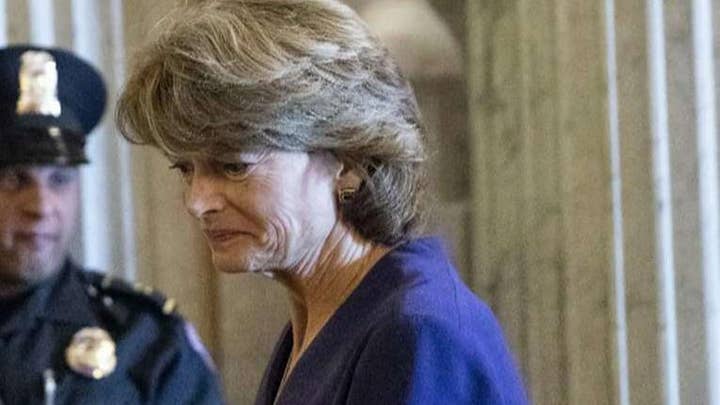Yale professor claims Mitch McConnell has 'zero constitutional authority' in an impeachment trial
A professor of history at Yale University claims in a thread of tweets that Sen. Mitch McConnell as zero authority to decide the 'shape of the impeachment trial' in the Senate.
Senate Majority Leader Mitch McConnell has come under fire from Democrats, and at least one Republican, for his coordination with the White House on the pending impeachment trial -- but the outrage overlooks the fact that Democrats took a similar approach with President Bill Clinton during his 1999 trial in the Senate.
McConnell, R-Ky., stirred a hornets’ nest when he told Fox News’ Sean Hannity earlier this month that he will be “coordinating" with the White House and that "there will be no difference between the president's position and our position as to how to handle this."
SCHUMER PANNED CLINTON IMPEACHMENT TESTIMONY AS 'THEATER,' NOW SEEKS 4 WITNESSES IN TRUMP TRIAL
"Everything I do during this, I will be coordinating with White House counsel," he said.
That comment sparked outrage from Democrats, with Minority Leader Chuck Schumer, D-N.Y., describing McConnell as “out of line.”
"As I said, discussion in this kind of situation is not out of the question at all," Schumer told CNN. "Saying you're going to do just what the president wants is totally out of line and Mitch McConnell has received a lot of justified criticism for that."
It recently drew barbs from at least one moderate Republican, Alaska's Lisa Murkowski.
"When I heard that, I was disturbed,” Murkowski told local NBC affiliate KTUU in an interview that aired Tuesday evening. “To me, it means that we have to take that step back from being hand in glove with the defense, and so I heard what leader McConnell had said, I happened to think that that has further confused the process."
MODERATE GOP SEN. MURKOWSKI 'DISTURBED BY MCCONNELL'S IMPEACHMENT COMMENTS
But whether or not Senate leaders should be coordinating with the White House, McConnell is appearing to follow a precedent set during the 1999 Clinton impeachment.
According to then-Washington Post reporter Peter Baker’s book, “The Breach: Inside the Impeachment and Trial of William Jefferson Clinton,” Senate Democrats coordinated with the White House on a number of impeachment-related issues behind the scenes.
According to Baker, one of those arrangements involved White House Counsel Charles Ruff arranging a “secret signal” with Democratic leadership. If Ruff wanted to rebut anything from the Republican House managers, something rules didn’t allow for, he pre-arranged with then-Senate Democratic Leader Tom Daschle’s aides for a senator to submit a question to then-Chief Justice William Rehnquist asking the White House to respond.
Aides reportedly would "fill in the name" of one of several "default senators" -- such as Sen. Patrick Leahy, D-Vt., and then-Sen. Chris Dodd, D-Conn. -- who had agreed to allow themselves to "be used in this way."
The book also detailed how then-Sen. Tom Harkin, D-Iowa, spoke with Clinton and helped organize a pressure campaign in defeating Sen. Susan Collins’, R-Maine., attempt to adopt “findings of fact” by which the Senate could take a majority vote on whether Clinton lied under oath and impeded discovery of evidence even if the chamber failed to convict him. Baker described how Clinton “tracked down Harkin in the Democratic cloakroom during a break in the trial to vent his outrage" at what Collins was cooking up.
“Harkin needed no convincing,” Baker wrote. “He had immediately recognized the pernicious effects of the findings plan and set about trying to destroy it before it got too far.”
CLICK HERE TO GET THE FOX NEWS APP
“The Breach” outlined how Daschle recruited “a crew of Democratic lawyers to help puncture holes in the [pro-impeachment] case.” The Democratic leader also warned the White House against submitting a motion to dismiss the case entirely.
Baker also described how the biggest debate in Daschle’s office centered on whether to direct questions to House managers at all.
“Instead, the Democrats decided it was better to concentrate on sending softball questions to the White House lawyers so they could score rhetorical points,” he said.
Fox News' Brooke Singman and Ronn Blitzer contributed to this report.














































